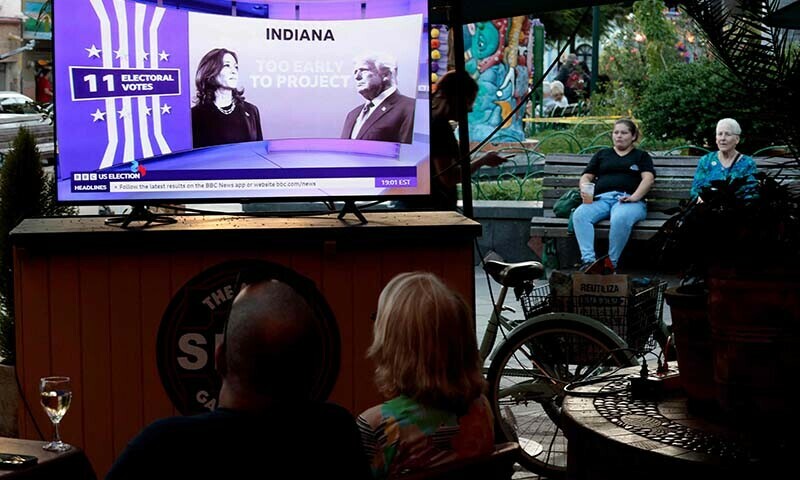
[ad_1]

Donald Trump’s electoral victory has left Mexico bracing for potential trade tensions, tariffs and mass migrant deportations that experts say could pose a major test of relations between the closely connected neighbours.
On the eve of the election, Trump vowed to impose tariffs of at least 25 per cent on goods coming from Mexico unless it stops an “onslaught of criminals and drugs.”
The Latin American nation “has to take what Trump says seriously” given his past actions such as building a border fence, said Pamela Starr, an expert on US-Mexican relations at the University of Southern California.
At the same time, “Trump likes to negotiate from a position of strength, which means he tends to use coercive rhetoric to lay out an extreme position from which he can negotiate down,” she told AFP.
Trump’s win sent the Mexican peso sliding to a two-year low against the dollar as markets prepared for increased trade frictions.
Gabriela Siller, head of economic analysis for the financial group Banco Base, described tariffs of 25pc as “no small threat”. “They would affect exports, formal job creation, foreign direct investment and economic growth,” likely leading to downgrades in Mexico’s sovereign credit rating, she said.
President Claudia Sheinbaum reassured Mexicans that Trump’s victory was “no cause for concern.” Mexico and the United States have “a very important economic integration that benefits both countries. It is a strength of both. We do not compete with each other, but on the contrary, we complement each other,” she said.
‘Credible threats’
Experts think Trump’s vow to carry out the largest mass deportation of migrants in American history will be one of the biggest tests for ties with Mexico.
Trump “will absolutely try to deport as many undocumented migrants in the United States as possible, and that’s going to create a real challenge in US-Mexico relations,” Starr said.
On the same day that Americans voted, hundreds of migrants in southern Mexico set off on foot in a caravan heading to the US border.
Heyson Diaz, from Venezuela, urged Trump to offer migrants an immigration procedure “to be able to enter the United States legally.” It is not the first time that Trump has threatened to impose steep tariffs unless Mexico does more to curb migrant flows – he did the same during his last presidency.
“And he got exactly the reaction that he wanted from Mexico,” which sent a high-level team to Washington to negotiate an agreement, said Duncan Wood, president of the Pacific Council on International Policy, a US nonprofit organization.
“These are credible threats. And Trump is not a free trader. The people around him this time around are not free traders. I think that there is every reason to believe that he would use that kind of threat to get Mexico to do exactly what he wants,” he said.
Trade relations were likely to “get very messy,” according to Wood, a longtime Mexico watcher who does not rule out Trump seeking to renegotiate a regional free trade agreement to obtain better terms.
That uncertainty would throw up a major hurdle to Mexico’s efforts to lure US-owned factories from Asia — a trend known as “nearshoring.” The free trade deal between Mexico, the United States and Canada — which Trump successfully pushed to revamp during his last presidency — is due to be reviewed in 2026.
“A Republican victory could imply a more aggressive negotiation style, generating more uncertainty that could permeate the exchange rate and inflation in particular,” said Ramse Gutierrez, vice president at investment firm Franklin Templeton in Mexico City.
Tough talk on cartels
When it comes to tackling drug trafficking, however, tough talk about bombing Mexican cartels or sending troops over the border is unlikely to become a reality, Wood said.
“Launching missile strikes into Mexico is not what the US military wants to do,” he said. “And any kind of boots-on-the-ground action in Mexico just would not fly,” he added.
On a personal level, relations between Washington and Mexico City are also expected to be rockier than they would have been if Democrat Kamala Harris had won.
“The problem is that Sheinbaum’s not only a woman, but she’s a strong, smart woman. And those aren’t the kind of women that Donald Trump is comfortable around,” Starr said.
“I think he will challenge her and push her and corner her. But she’s tough, and I suspect that she will hit back as hard and he will realize that he has to come to some sort of an agreement with her, ultimately,” she said.
[ad_2]
Source link






